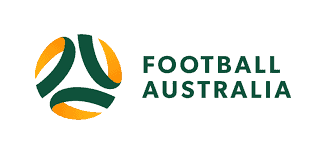If there is one relationship in Australian football closest to Canberra Croatia’s affinity with trophies, it would undoubtedly be Marko Vrkic’s knack for overseeing success at the club, having been a key part of its last 19 league victories.
Vrkic has been a part of the fabric of the most successful club in Canberra football history for close to two decades and still takes great pride in the accomplishments of the men and women, boys and girls who pull on the famous red jersey.
Having seen it all, it’s no surprise that his fondest recollections of his time involved with the club have been the silverware, and there’s been plenty of that to celebrate.
“Memories of trophies,” Vrkic said simply on what he recalls of the continued success. “With Croatia Deakin we won 25 championships. For the first six I was not here, and the last nineteen I was involved with every trophy as a coach, player, president and on the board of directors. Nine FA Cups [Federation Cup], nine top four playoffs [Finals], and nineteen championships, so 37 trophies altogether.”
Before his success-littered move to Australia, the Capital Football Hall of Fame inductee’s earliest football memories were founded in his junior playing days back in his home country of Croatia.
“I was a junior player at a professional club in Croatia, at Rijeka,” Vrkic said. “When I finished as a junior professional, I played in the second division, which was made up of amateur clubs, and of course if you play at an amateur level [and] after 6 months you don’t play, by FIFA rule they give you freedom.”
“In December 1985 I came to Australia, I was just coming to help my cousin’s side Croatia Deakin to play, to win, and I played only six months for them, and then went back again to Croatia.”
The originally planned brief stint Down Under however, transformed into a permanent relocation.
“I never thought I would be Australian,” Vrkic said. “You know when you’re a kid, 23, 24 years old, you want to see all of the world. When I came to Australia, I saw my cousins, my Croatian community, people who are in a country with freedom. In the committee that started this club, I had one uncle on my mother’s side and two on my father’s side, my parents’ uncles, three of them from seven who established this club, I never knew that until I came.”
Picking up where he left off after moving to the country in 1987, Vrkic hit the ground running as a player following his move to Australia, before stepping into many different roles at the club, and it was with the junior sides that he established himself as an adept football coach, all the while showcasing his ability to develop players into future first team regulars.
“I continued to play [from] 1986 to 1991 for the first-grade team and after this, I started my coaching with juniors from 1991 to 1992 [where] I coached u7-u10 kids, up to u16-u18,” Vrkic recalled. “With the u13s, u14s, and u18s, these sides won Kanga Cup,” he commented.
“We won it three times with this generation of juniors, and now today those juniors playing are Ryan Keir, and Daniel Barac, they play in first grade, that’s that generation. My biggest player I coached in 1991-92 was Josip Simunic, who played for Hamburg in Germany and played for Croatia 103 times at the national team, he was my junior.”
Vrkic enjoyed great success at achieving notable results at youth level as well, none more so than a title that holds a special place in his heart.
“One of the biggest trophies I won, and I loved that one, in the 2003/04 National Soccer League U20 youth in Australia,” he remembered. “Croatia was the only club out of the AIS competition, and the only club with no seniors in the professional league.
“We only had juniors in under-20, and we won the north division which included teams from Sydney, Brisbane, and Canberra. Then, against South Melbourne at McKellar Park in Canberra, we beat them 2-1 to become the champion of Australia.”
After a monumental impact at youth level, Vrkic progressed to the senior Canberra Croatia side, where he oversaw their 1993-1996 seasons as the coach, having been tutored in the role by professionals.
“In my line of coaches was one former national Croatia coach,” he recalled. “He was called Ćiro [Miroslav] Blažević and won the bronze medal at the 1998 World Cup for Croatia. He was the senior coach; I was the junior coach.”
It was under the leadership of such names that Vrkic was able to develop his coaching ideology, and the key focuses for attribute development in players.
“These three things; discipline, making sure players are healthy, and winning, that’s three big things for a coach,” he emphasised. “Discipline is very important, that’s what I want, sports and fair play. I teach [my players] to be fair, not to go and injure somebody, you must teach them how to talk to the ref, how they talk to opposition players, how they talk for crowds.
“Training is more important than a game, if you do not go well in training and understand logic about [your] football, then you don’t have a result, [it’s as] simple as that. In 1998 I coached first grade again, and then in 1999 at a December general meeting I became President of the club, from 1999 to 2017, for 18 years.”
Nowadays, after stepping down from presidency in 2017, Vrkic remains a prominent member of the club and community.
“I’m still on the board of directors because I was president,” he explained. “My job on the board of directors is as the director of Deakin Stadium. Every year we do something to upgrade, [including] the lights or changing rooms, it is one of the top facilities in Canberra and has a good atmosphere. It is not an easy job looking after the stadium, you need to make sure this facility is clean, make sure this facility is beautiful to play,”
Alongside his enduring commitment to Canberra Croatia, Vrkic has been running his own business for 30 years, having established an electrical company in 1993. Even in his day-to-day job, the 61-year-old is looking to give back to the community and support the club.
“I give a lot of sponsors for the club, for the community, I help today as much [as] I can,” he said.
And as for his time off, what time off? Vrkic is rarely found with any number of hours that are not engulfed by the world game.
“My life is football,” he chuckled. “I don’t have many hobbies because I’m so much into football, my life is soccer, it is number one, that’s my hobby, all my life every day.”
For many, the achievements that Vrkic has collected would seem unfathomable to accomplish, however for someone like him, his ingrained loyalty and dedication to the club has allowed him to thrive and make a lasting impact at Canberra Croatia, and in Australian football
“I never put myself in front of the club,” he stated. “I’m behind, I am always at the service of the club, I never work for myself and what I do, I don’t do it for myself. I put a lot of mental energy in the club, if they always see my committee, I go first, I go last, I was first to work.”
Having achieved numerous trophies, successfully run a business for 30 years and travelled the world, there is still one unfinished goal left for Vrkic.
“I am waiting to be a grandfather, to start coaching my grandsons in juniors, that’s my mission,” he said. “If I meet my mission to coach my grandchildren, to teach them, that’s my dream, if I do that one, I do everything.”
Words: Sam Watson











